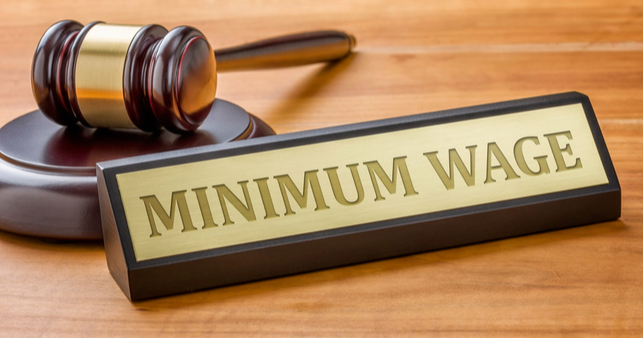
The New Zealand government has announced the minimum wage will increase starting on 1 April 2024.
The minimum wage will rise 2% to $23.15 per hour. This is an increase of $0.45 per hour from the current hourly rate of $22.70.
Both the training and starting-out minimum wages will also increase to $18.52 per hour, remaining at 80% of the adult minimum wage. This is a rise from the current minimum wage of $18.16 per hour.
The Government will review the rate again later this year.
Eligibility
Minimum wage rates apply to all employees aged 16 years and older who work full-time, part-time, fixed-term, casual, and from home.
The following employees are exempt from the standards of the Minimum Wage Act 1983:
Employees under 16 years (but they are still entitled to other minimum employment rights).
Some disabled employees who hold an exemption permit from the minimum wage.
Inmates of a charitable institution.
Prisoners working in custody under the Corrections Act 2004.
Apprentices who are under any other Act.
The impact of minimum wage increase
In contrast to the previous minimum wage increase of 7% in 2023, this latest increase is relatively modest. Workplace Relations and Safety Minister Brooke van Velden has said that the increase is about striking the right balance between protecting the incomes of New Zealand’s lowest-paid workers and maintaining labour market settings that encourage employment.
“The economic context has changed significantly over the past year. While unemployment is currently low, the labour market is softening due to high net migration rates, constrained consumer spending and subdued economic growth. Given these economic headwinds, a cautious approach to the minimum wage is required this year”, said van Velden.
Some businesses have welcomed the smaller minimum wage increase this year, particularly those with tight margins and labour-intensive operations. “An increase to $23.15 will benefit between 80,000 and 145,000 workers and will give our lowest-paid workers more money in their pockets without hindering job growth or imposing unreasonable costs on businesses”, said van Velden.
Business confidence improving
New Zealand businesses ended 2023 on a more optimistic note, experiencing a significant improvement in confidence compared to the previous quarter and a year ago.
The New Zealand Institute of Economic Research (NZIER) released its latest Quarterly Survey of Business Opinion (QSBO), revealing a sharp improvement in business confidence over the last quarter of 2023. While 10% of firms are still expecting a worsening in general economic conditions over the coming months, this is a significant decrease from the net 49% in the previous quarter and the net 79% a year ago.
This shift stems from increased demand, easing labour shortages, and moderating cost and pricing pressures. Businesses across sectors like retail and building reported a pick-up in activity, although profit margins remain squeezed for some. While downbeat sentiment persists in manufacturing and services, these sectors also show signs of recovering demand.
Overall, the latest QSBO suggests a more positive outlook for the New Zealand economy in the coming year, marked by increased hiring, investment, and potentially continued moderation in inflation.
What should employers do?
Employers need to be prepared for wage increases. These changes impact businesses across all industries. Employers who fail to pay the correct minimum wage may be forced to pay back the full amount of lost wages and a severe penalty.
Be sure to stay informed on the current minimum wage rates for all employees aged 16 years and older. Employsure has worked with 30,000 businesses across Australia and New Zealand, supporting them in employment relations and workplace health and safety. You can call our 24/7 Advice Line today on 0800 675 700 to get your urgent questions answered.

